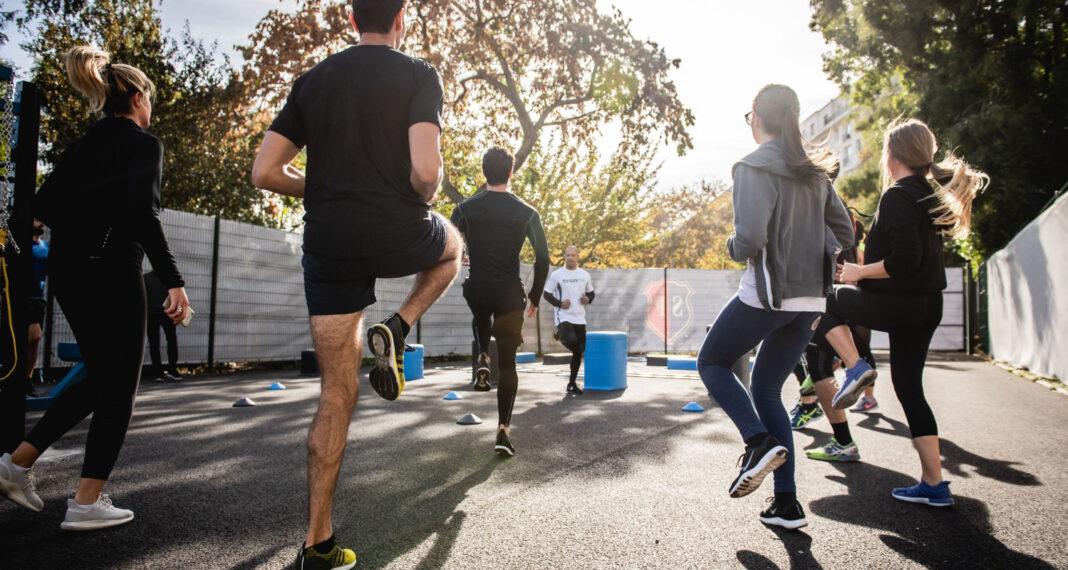The eternal struggle of balancing a scrumptious, nutrient-packed meal and that exhilarating workout session! Ever found yourself panting just a few minutes into your jog, or perhaps those muscles screamed a tad too loud after a hearty workout? The culprit often lurks in our plates’ shadows, disguised as too much or too little.
How does nutrition relate to exercise? This fundamental question explores the intricate connection between what we eat and our physical activity levels. Nutrition fuels exercise by providing the necessary energy for your workouts and aids in efficient recovery and muscle repair post-exercise.
Nutrition and exercise, a duo that should harmonize like bread and butter, often find themselves in a tumultuous relationship, leaving us bewildered and exhausted. But fret not! We’re diving deep into the nitty-gritty of nutrition and its love affair with exercise, unraveling secrets to fuel your body, amplify your workouts, and perhaps make those muscles hum a happier tune!
See Also: How Does Nutrition Influence Growth of Child: A Comprehensive Guide
Contents
The Role of Nutrition in Exercise
Ah, the delightful symphony of crunching on a vibrant salad or sipping a meticulously blended smoothie! But wait, how does this culinary concert translate into those energetic leaps in your Zumba class or the steadfast stamina during a marathon? Let’s embark on a journey to decipher this, shall we?
How does nutrition relate to exercise? Imagine your body as a sophisticated machine. Just like a car needs fuel to zoom across highways, your body craves nutrition to power through squats, sprints, and sun salutations. Nutrition, in its essence, is the vibrant tapestry of carbohydrates, proteins, fats, vitamins, and minerals that orchestrate a melody of vitality, propelling your body through each stride and jump.
Nutrients
Carbohydrates, often dubbed the body’s primary energy source, resemble the initial burst of speed in a race. They propel you forward with gusto. Imagine lacing up for a run, and carbohydrates swiftly convert into glucose, fueling those initial miles with zeal.
Then, enter proteins, the silent warriors aiding recovery and muscle repair. They ensure each workout doesn’t leave you stranded in a sea of soreness. Picture wrapping up a strenuous workout, and proteins whisper to your muscles, mending and strengthening them for the adventures ahead.
Let’s not forget fats, the enduring energy reservoir. They step in when carbohydrates have bowed out, ensuring your energy doesn’t plummet mid-way through your endeavors.
But the symphony doesn’t end here. Vitamins and minerals, while not direct energy sources, play a pivotal role in unlocking the energy stored in food. They ensure your metabolic processes run like a well-oiled machine.
In a nutshell, nutrition is not merely a backstage player but a star performer in your exercise saga. It ensures each workout is a physical exertion and a splendid performance. Your body, fueled and fortified, dances to the rhythm of vitality and vigor.
Balancing Diet and Physical Activity
Embarking on a journey through diet and physical activity often presents a delicate dance. It’s a ballet where calorie intake and expenditure twirl harmoniously, ensuring one does not overshadow the other. This narrative involves the foods you consume and the energy you expend during exercise, weaving a tale of nutritional equilibrium and optimal performance.
Picture this: a seesaw. On one side sit the hearty meals and snacks you consume; on the other, the energy you burn through physical activities. The goal is to have the seesaw gently teetering, maintaining a balance that neither plummets nor skyrockets but rather gracefully oscillates between energy intake and expenditure.
How does nutrition relate to exercise?
Calorie intake, the energy gleaned from your meals, fuels your physical endeavors, much like stocking up on logs to keep a fire blazing. However, the art lies in ensuring that the energy consumed does not vastly outweigh the energy expended, preventing the seesaw from tipping unfavorably.
Conversely, calorie expenditure through exercise should not starkly overshadow intake. This prevents a scenario where the body, in a desperate plea for energy, begins to compromise muscle mass, impacting overall health and performance.
Now, let’s delve into nutrient timing, a crucial yet often overlooked character in this narrative. Imagine orchestrating a play where each actor, or in this case, nutrient, takes center stage at the precise moment, maximizing impact and performance. Consuming carbohydrates before exercise ensures a robust energy supply, while proteins post-exercise aid in meticulous muscle recovery and repair.
Balancing diet and physical activity is not merely a mathematical equation of calories in and out. It’s a nuanced ballet where mindful consumption meets strategic nutrient timing. This crafting creates a narrative of sustained energy, optimal performance, and holistic well-being.
Macronutrients and Exercise
Navigating the world of exercise introduces us to three pivotal characters starring in our physical adventures: carbohydrates, proteins, and fats. These macronutrients, each with unique attributes, weave a tale of energy, endurance, and recovery. They ensure our bodies are not merely moving but thriving amidst the physical exertions.
Carbohydrates: The Swift Energy Conduits
Carbohydrates, often hailed as the body’s premier energy source, are akin to the initial, robust wind that propels a sailboat. As we exercise, especially in activities that demand quick bursts of energy like sprinting or high-intensity interval training, carbohydrates step into the limelight. They swiftly convert into glucose, fueling our muscles and ensuring that a sturdy energy reserve backs our physical endeavors. But the role extends beyond immediate energy; stored carbohydrates (glycogen) in our muscles and liver act as reserved fuel, ready to power through extended physical activities.
Proteins: The Architects of Repair and Growth
Enter proteins, the meticulous architects that oversee recovery and muscle development post-exercise.
Imagine concluding a rigorous workout. Your muscles have been challenged, fibers have experienced wear and tear, and a repair mechanism is imperative. Proteins, with their amino acids, facilitate the repair of these muscle fibers. They ensure that they emerge stronger and ready to tackle subsequent physical challenges.
Moreover, proteins are instrumental in constructing new muscle tissue. This aids not just in recovery but also in enhancing muscle mass and strength.
Fats: The Enduring Energy Reservoir
Often underappreciated in the exercise narrative, Fats emerge as the enduring energy reservoir. This is especially vital during prolonged, low-intensity exercises like long-distance running or cycling. When carbohydrate energy depletes, fats gallantly step in, ensuring that the body continues to have a fuel source to rely upon. They break down into fatty acids, which can be utilized for energy. This ensures the body can sustain physical activity even as initial energy stores wane.
In the grand scheme of exercise, carbohydrates, proteins, and fats each play a distinctive, indispensable role. They orchestrate a symphony of energy provision, muscle recovery, and sustained endurance. Understanding and honoring each macronutrient’s role ensures that our exercise endeavors are not merely actions but a harmonious ballet of vitality, strength, and endurance.
See Also: Best Caffeine Pills for 2022 | Top 14 Picks
Hydration and Exercise Performance
Embark on any physical endeavor; hydration becomes your silent yet indispensable ally. It weaves through the tapestry of your exercise journey, ensuring every muscle twitch and every bead of sweat is supported by a foundation of optimal fluid balance. The narrative of hydration and exercise is a tale of quenching thirst. It’s a saga where every sip contributes to performance, endurance, and recovery.
Imagine setting forth on a run. As your muscles engage and your heart rate elevates, your body begins to perspire, releasing water and essential electrolytes.
Here, hydration steps into the spotlight. It replenishes lost fluids, maintains electrolyte balance, and ensures that physiological processes occur seamlessly.
Prioritize hydration before exercise, and you gift your body a head start. This ensures that as you dive into physical activity, your muscles and systems are bathed in adequate fluids and ready to perform.
During exercise, sipping on the water becomes a subtle yet crucial act. It sustains energy levels, regulates body temperature, and prevents undue fatigue.
As the curtain falls and your exercise concludes, hydration takes on the role of recovery. It aids in replenishing lost fluids and electrolytes, ensuring that your body gracefully recovers and is ready to embark on subsequent physical adventures.
In the grand narrative of exercise, hydration emerges not merely as a component but as a continuous, vital thread. It binds performance, endurance, and recovery into a cohesive, triumphant story of physical well-being.
Nutrition for Different Types of Exercise
How does nutrition relate to exercise? Embarking on diverse exercise pathways, from robust strength training to enduring endurance exercises, we encounter a spectrum of nutritional needs. Each is tailored to support, enhance, and recover from the specific demands of the activity. Let’s navigate through these varied terrains, understanding how nutrition morphs to meet the unique demands of different exercise types.
Strength Training: Building and Repairing
Protein emerges as the cornerstone in strength training, where muscles are challenged, torn, and subsequently rebuilt. Picture each lift and resistance your muscles encounter; it’s a protein that whispers promises of repair and growth amidst the strain. Adequate protein intake ensures that the muscles are bathed in amino acids post-workout, facilitating repair and fostering growth. Carbohydrates, too, play a pivotal role, replenishing glycogen stores and providing the energy to power through each set and rep.
Endurance Training: Sustaining and Energizing
Contrast this with endurance training, a saga of sustained energy and stamina. Here, carbohydrates take center stage, providing continuous fuel to ensure each mile is met with unwavering energy. Imagine the long stretches of a marathon or a cycling session; carbohydrates ensure energy does not plummet mid-way. Fats, too, play a crucial role, providing a reservoir of energy as the exercise prolongs and carbohydrate stores dwindle. Hydration, with a blend of electrolytes, becomes imperative to replace the fluids lost through perspiration and sustain physiological processes.
Flexibility and Balance Exercises: Nourishing and Supporting
Venturing into exercises that emphasize flexibility and balance, like yoga or pilates, shifts the nutritional focus. It centers on providing a consistent energy supply and muscle nourishment. A balanced intake of carbohydrates, proteins, and fats ensures a steady energy supply while supporting muscle health and recovery post-exercise.
In the diverse landscape of exercise, nutrition adapts. It offers a tailored support system, ensuring that whether you’re lifting, running, or stretching, your body is nourished, energized, and ready to recover. This propels you toward your fitness goals with vitality and vigor.
See Also: Best Beta Alanine Supplements For 2022
Common Nutritional Challenges for Athletes
Navigating the athletic world involves physical prowess and strategic nutrition. Athletes often encounter numerous nutritional challenges in their pursuit of optimal performance and recovery. Let’s delve into these common challenges. We’ll explore the intricacies of how does nutrition relate to exercise, maintaining energy, ensuring nutrient intake, and managing hydration amid the rigorous demands of athletic endeavors.
Maintaining Energy Levels: A Delicate Balance
Athletes, constantly oscillating between intense training sessions and competitive events, often grapple with maintaining consistent energy levels. The challenge lies in ensuring a steady energy supply via carbohydrates without tipping into excesses that could impede performance. Striking a balance where energy intake precisely meets expenditure, ensuring vigor without unwanted weight gain, becomes a nuanced dance of meticulous meal planning and timely intake.
Ensuring Adequate Nutrient Intake: A Symphony of Nourishment
Ensuring a comprehensive nutrient intake, where proteins, fats, vitamins, and minerals play their harmonious symphony, becomes pivotal. The challenge here is multifaceted. It ensures proteins support muscle recovery, fats provide a reservoir of energy, and vitamins and minerals facilitate physiological processes. This is while also catering to the athlete’s specific requirements and preferences. This crafting of a nutritional plan is as effective as it is palatable.
Managing Hydration: A Continuous Flow
Hydration, while seemingly straightforward, poses its own set of challenges. Athletes need to ensure adequate water intake and a balance of electrolytes to prevent conditions like hyponatremia. The continuous dance of hydrating before, during, and after events is crucial. It ensures that fluid intake supports but does not hinder performance by causing cramps or frequent bathroom breaks.
In athletics, physical demands meet nutritional science. Navigating these challenges becomes integral to the journey, ensuring that the body performs and thrives amid the rigors of athletic pursuits.
See Also: MuscleMeds Carnivor Beef Aminos Review | Detailed Analysis
FAQs
Why is nutrition important for exercise?
Nutrition provides the essential energy needed for exercise and aids in optimal recovery and muscle repair post-activity, ensuring sustained performance and improved endurance.
How do carbohydrates impact exercise performance?
Carbohydrates are a primary energy source, converting into glucose to fuel muscles during exercise, supporting sustained activity, and preventing early fatigue.
What role does protein play in post-exercise recovery?
Protein facilitates muscle recovery post-exercise by repairing muscle fibers, aiding in muscle growth, and preventing excessive muscle breakdown, ensuring readiness for subsequent activities.
How does hydration affect physical activity?
Adequate hydration supports optimal physical performance by maintaining body temperature, ensuring joint lubrication, and aiding in nutrient transport, preventing cramps, and premature fatigue during exercise.
Conclusion
How does nutrition relate to exercise? Embarking on a journey through nutrition and exercise, we’ve navigated through the intricate tapestry. Macronutrients fuel our physical endeavors, hydration sustains our vitality, and balanced diets support varied exercise regimes.
From the robust energy demands of strength training to the enduring stamina required in endurance exercises, our nutritional choices craft a narrative. This narrative is one of performance, recovery, and overall well-being.
Let’s carry forward the insights. Ensure that our plates become a palette of nourishment, our hydration a continuous cascade of vitality, and our nutritional choices a harmonious melody. This melody enhances every leap, sprint, and lift in our exercise saga. Prioritize nutrition, embrace exercise, and weave a tale of optimal health and peak performance together.
See Also: The Best Glutamine Powder [Top Picks]

Amy Mackelden is a freelance writer, editor, and disability activist. She’s the weekend editor at MalePatternFitness, and her bylines include Cosmopolitan, Marie Claire, ELLE, The Independent, Nicki Swift, Bustle, xoJane, and HelloGiggles. She’s written about health for MS Society, MS Trust, The Checkup, The Paper Gown, Folks, HelloFlo, Greatist, and Byrdie.











